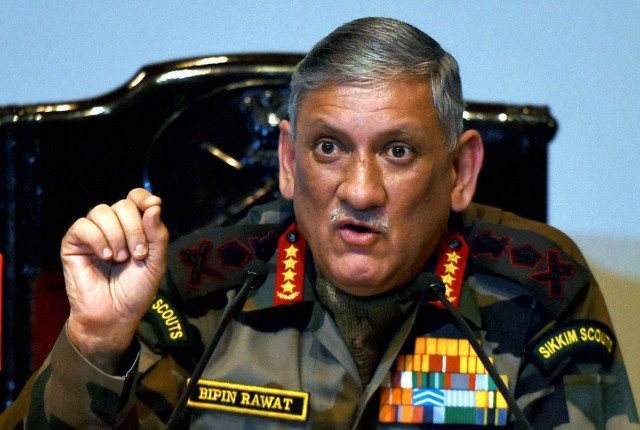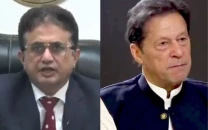Indian army chief criticises those involved in protests over anti-Muslim law
Political leaders demand an apology from Gen Rawat for directly indulging in condemning student protesters

Indian army chief Gen Bipin Rawat. PHOTO: FILE
Shortly after his statement, the army chief was accused of making political remarks, by opposition leaders, activists and military veterans, reported Indian media.
"Leaders are not those who lead people in inappropriate directions, as we are witnessing in a large number of university and college students, the way they are leading masses of crowds to carry out arson and violence in our cities and towns. This is not leadership," he said.
"A leader is one person who leads you in the correct decision. Gives you the right advice and then ensures that you care for the people you live for."
Pakistani Hindus reject India’s offer for citizenship
The Citizenship Amendment Act (CAA) aims to fast-track citizenship for persecuted Hindus, Parsis, Sikhs, Buddhists, Jains and Christians who arrived in India before Dec 31, 2014, from Muslim-majority Afghanistan, Bangladesh and Pakistan.
Its passing triggered demonstrations all across the country.
After General Rawat's comments regarding the protests, the former Navy Chief Admiral L Ramdas responded to his criticism, saying that he was 'wrong' for commenting on political matters.
Other political leaders demanded an apology from the chief for his 'indiscretion' and for 'directly indulging' in condemning student protesters.
Rights activist Yogendra Yadav said, "I agree with him, yes leaders should lead [people] in the appropriate direction. I am absolutely sure, he has the prime minister in mind when talking about that."



















COMMENTS
Comments are moderated and generally will be posted if they are on-topic and not abusive.
For more information, please see our Comments FAQ